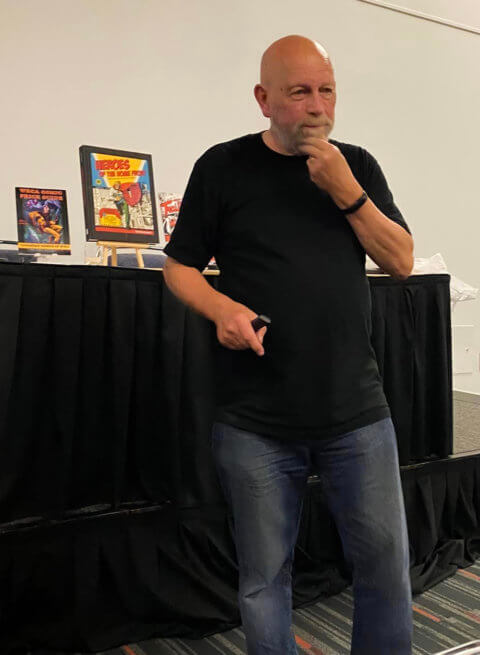
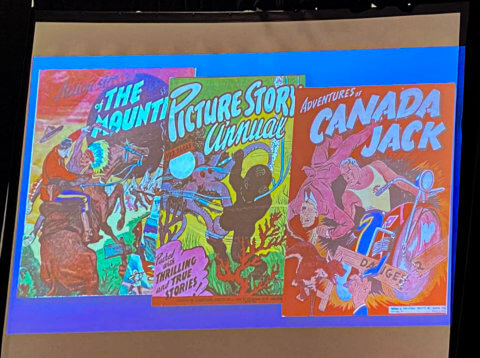
I had a very positive time at this year’s Montreal Comicon giving a couple of presentations. On Saturday I offered “Canadian Super Heroes of WW II” which had a very engaged audience of about 80 people who wanted to find out more about the Canadian war-time comics and the costumed characters that populated them. I ran out of my business cards handing them out at the end and sold the few copies of my books I had on display. The day before, on Friday, I presented “Educational Projects: Montreal’s Comic Book Publisher of WW II,” which had a smaller audience of about 15, but again, many great questions and I sold another couple of my books that I had on display.
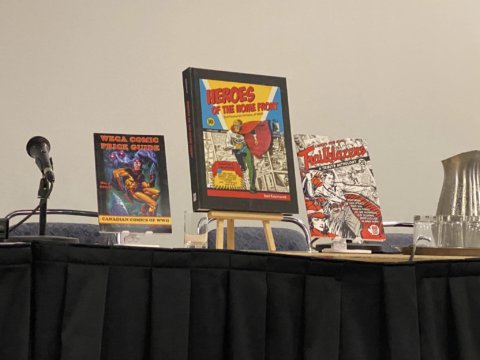
However, the thing I do want to write about is the comic book that my friend and Quebec comics super-collector, Rosaire Fontaine, brought to that talk. This was a previously unknown true Quebecois French Canadian comic that I think must be counted as a WECA comic, and one that I will be sure to include in my forthcoming photo-journal style and coffee table-sized book with the working title, Canadian Comic Book Covers: 1941-46.
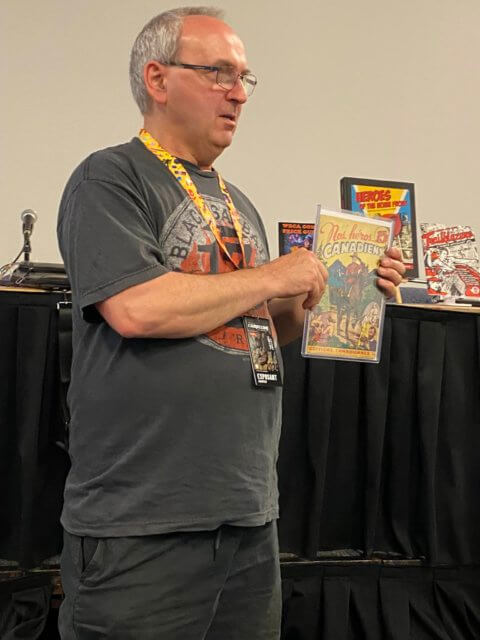
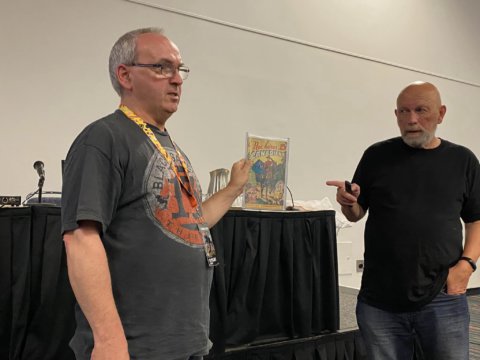
The title of the comic is Nos Héros Canadiens which, of course, is “Our Canadian Heroes” in English. Here is the cover and, in all respects, it looks like a French version of Educational Projects’ comic series Canadian Heroes.
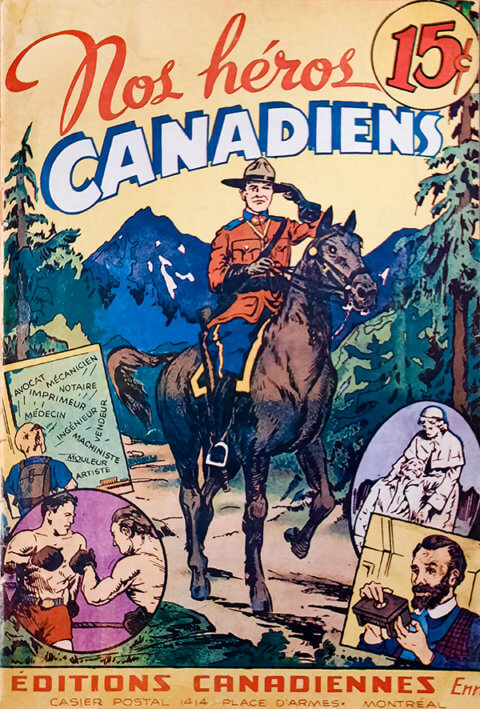
The cover is done by an artists I don’t recognize and the publisher, Éditions Canadiennes ENRG. with the mailing address of post office box 1414 Place D’Armes in Montreal, is also unknown to me, but it looks like, from the inside front cover and the back cover, it publishes children’s books and colouring books and has some affiliation with FIDES who published the long-running Hérauts series (1944-65). There is no proper indicia that gives a date, but with a reference to Hérauts it has to be post 1944. We get a better idea when we look at the contents and here are some of the splashes of which I managed to take pictures
The lead-off story in the book about the mounted police is reprinted from the very first issue of Canadian Heroes Comics. Art is by Joe Hillenbrand and the text has been translated into French though not always in exact correspondence to the English.
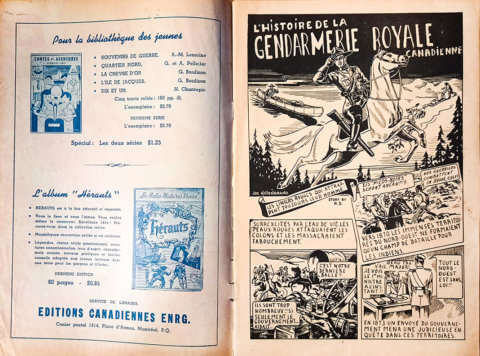
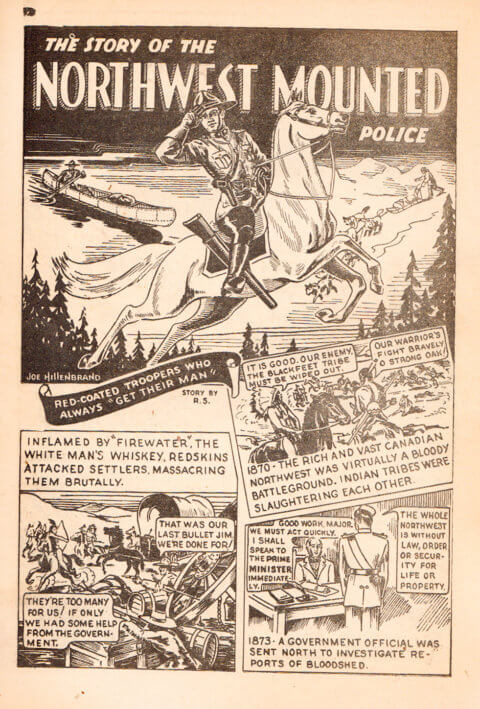
Another feature in this French Canadian comic is about a 17th century lay nurse in Quebec named Jeanne Mance and, again, is reprinted from Canadian Heroes Vol. 1 No. 1. Here, however, you can see that the original writer’s credit has been removed in the French version.
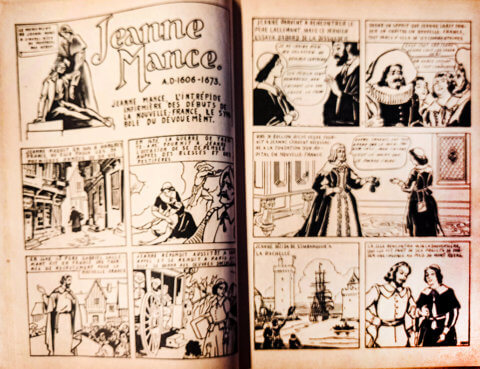
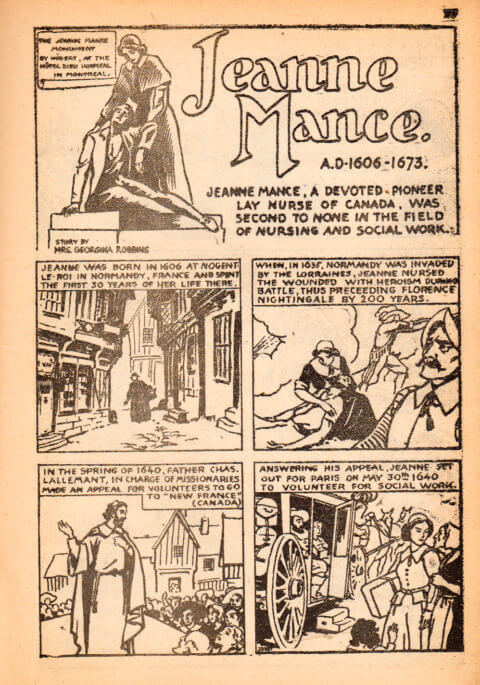
The next splash I took a picture of I can trace back to a story from Canadian Heroes Vol. 1 No. 6 which features the first appearance of Judge Goodwin who offers up vocational information and advice for young readers. This feature was always drawn by future editorial cartoonist Syd Barron but in the French version the writer and artist credits have been removed and no reference is made to Judge Goodwin—the narrator is just referred to as “your guide” (votre orienteur).
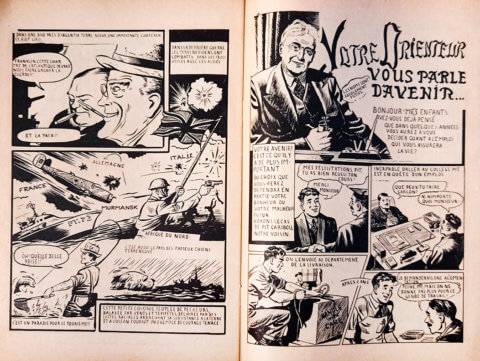
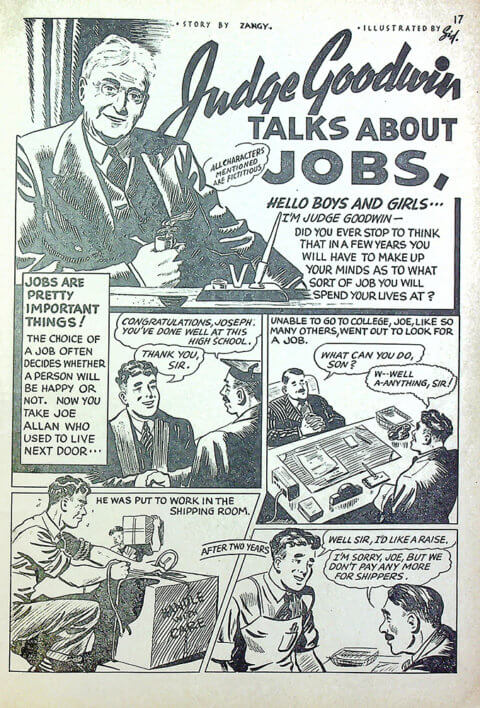
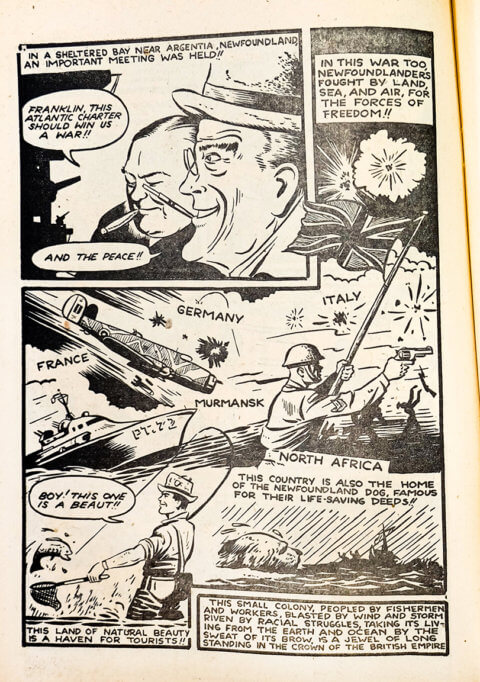
Of interest also is the fact that the last page of the story that precedes the French version is recognizable as the feature on Newfoundland that appeared as the lead off story in Canadian Heroes Vol. 5 No. 5, the penultimate issue of the title and dated September 1945. It is interesting to note that this feature was drawn by Bell Features artist and creator of Mr. Monster, Fred Kelly who must have been freelancing at just after the war and did a number of stories in the last few issues of Canadian Heroes. Here is the Fred Kelly splash for that story from Canadian heroes.
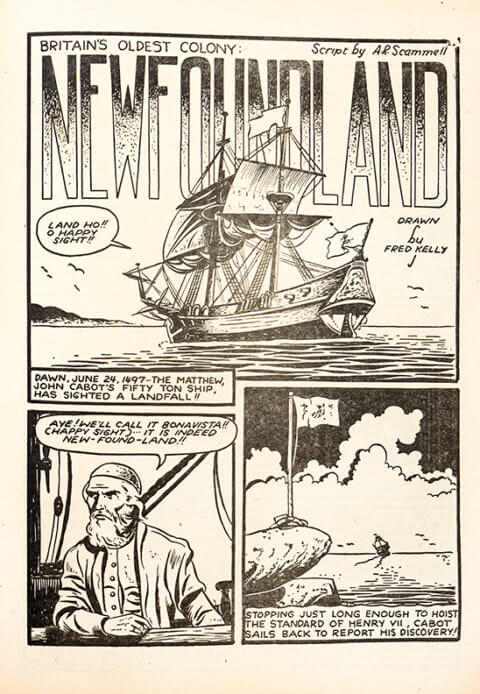
With that Fred Kelly story dating from September 1945 this Nos Héros Canadiens issue must be from the last quarter of 1945 at the earliest and may even be from 1946. The issue has no number and may just be a one-shot, but it clearly looks to have had some negotiations and an agreement to reproduce the art from Educational Projects’ Canadian Heroes features. What is important about it is that it appears to be a proper French-Canadian comic from the forties that is not anchored in Catholic religious themes such as the Hérauts series from Fidés.
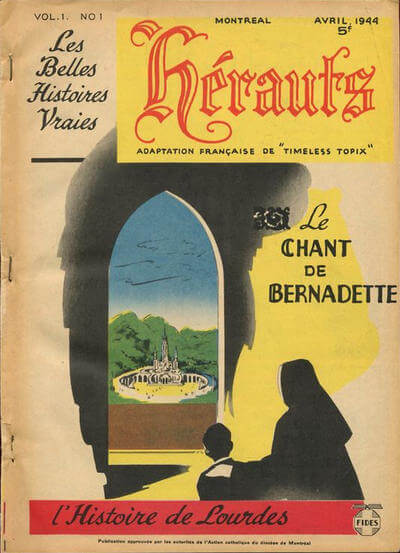
Why could we produce English comic book publishers in Vancouver, Toronto, and Montreal during the War Exchange Conservation Act (1941-46) but never a French publisher that produced non-religious-themed comics? My conjecture is that the Catholic Church had such a hold over and command of education and the mass media in Quebec during World War II that it wasn’t conducive to the production of non-religious-themed Frech comics but that a pocket of Anglophones in Montreal such as Educational Projects could get away with producing a series of English comics such as Canadian Heroes.
In any event, this certainly looks like a one-off or one-shot issue and it was found in Ottawa. I wonder if any more copies will ever show up? I definitely plan to include this cover in my book on WECA comic book covers but it makes you think how many new WECA comic discoveries can still turn up.

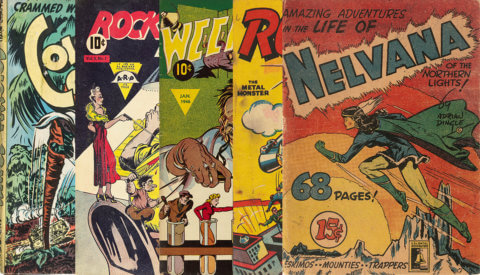
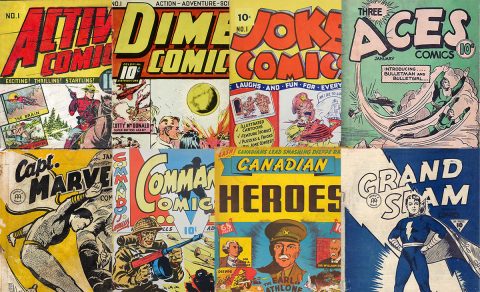
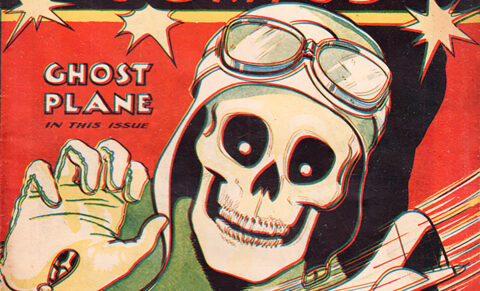
Where can I buy these books?
Hi Ivan. My father was a ww2 veteran. So were many of my Uncles. Though some Quebec Catholics were enrolled, many didn’t, My father said that the Catholic church encouraged their French speaking members not to join the army for obvious reasons. Ireland had a similar policy. I know this because my Grandfather was Irish, and he volunteered, and was shunned after the war in Ireland . Think of Rocket Richard, Pierre Trudeau and many other French speaking persons who failed to volunteer and partake. This policy , spoken and unspoken by the Catholic church, may have also taken the form of failure to romanticize War time adventure.
Amazing discovery Ivan.
I grew up in a Catholic school system starting in Grade 3 after a Public school system (at my father’s school) and I felt the difference too in the curriculum (even before I knew what a Curriculum was).
My father still has get together’s with his classmates and he was born in 1943.
I hope you can reprint the whole book